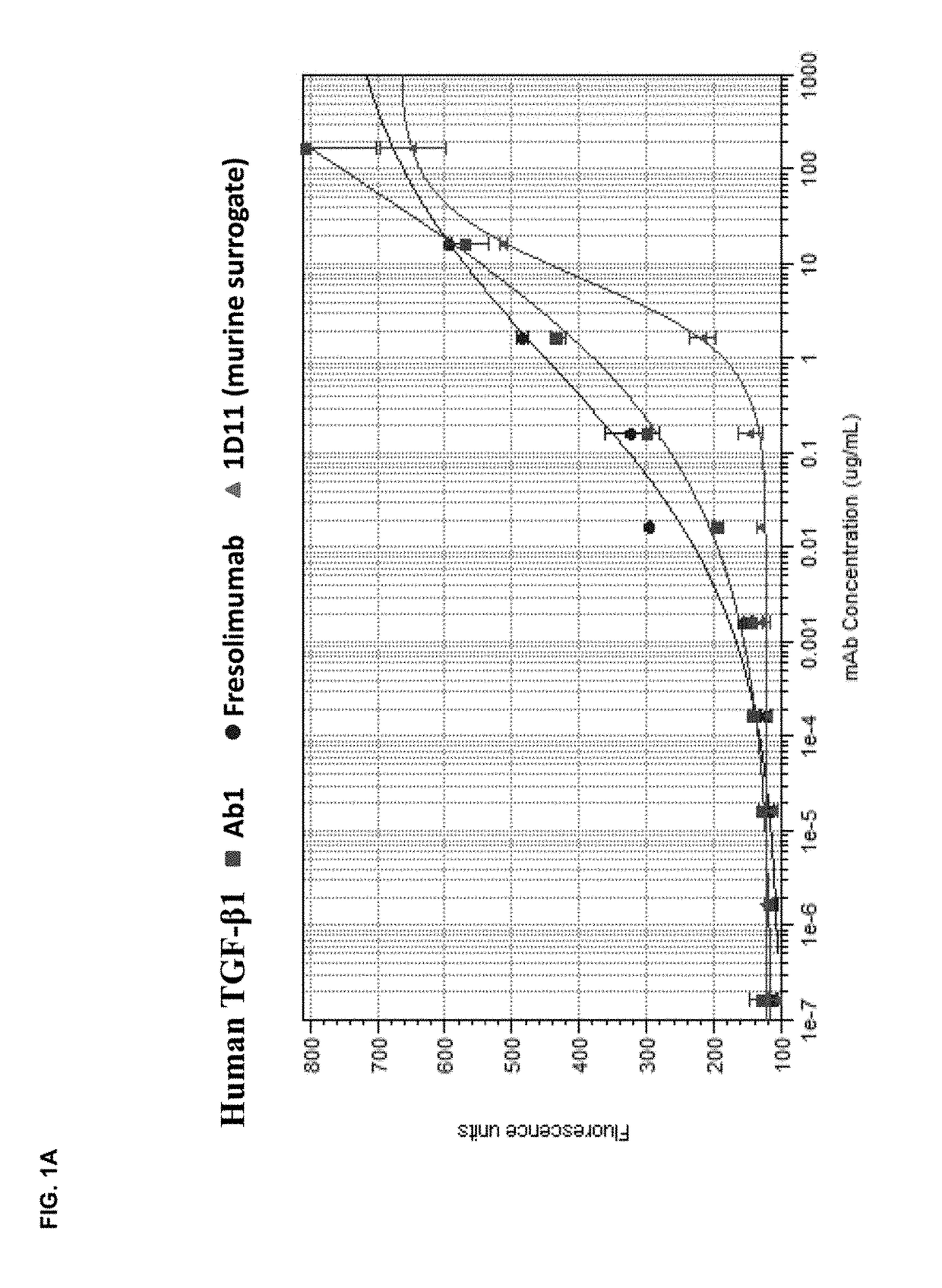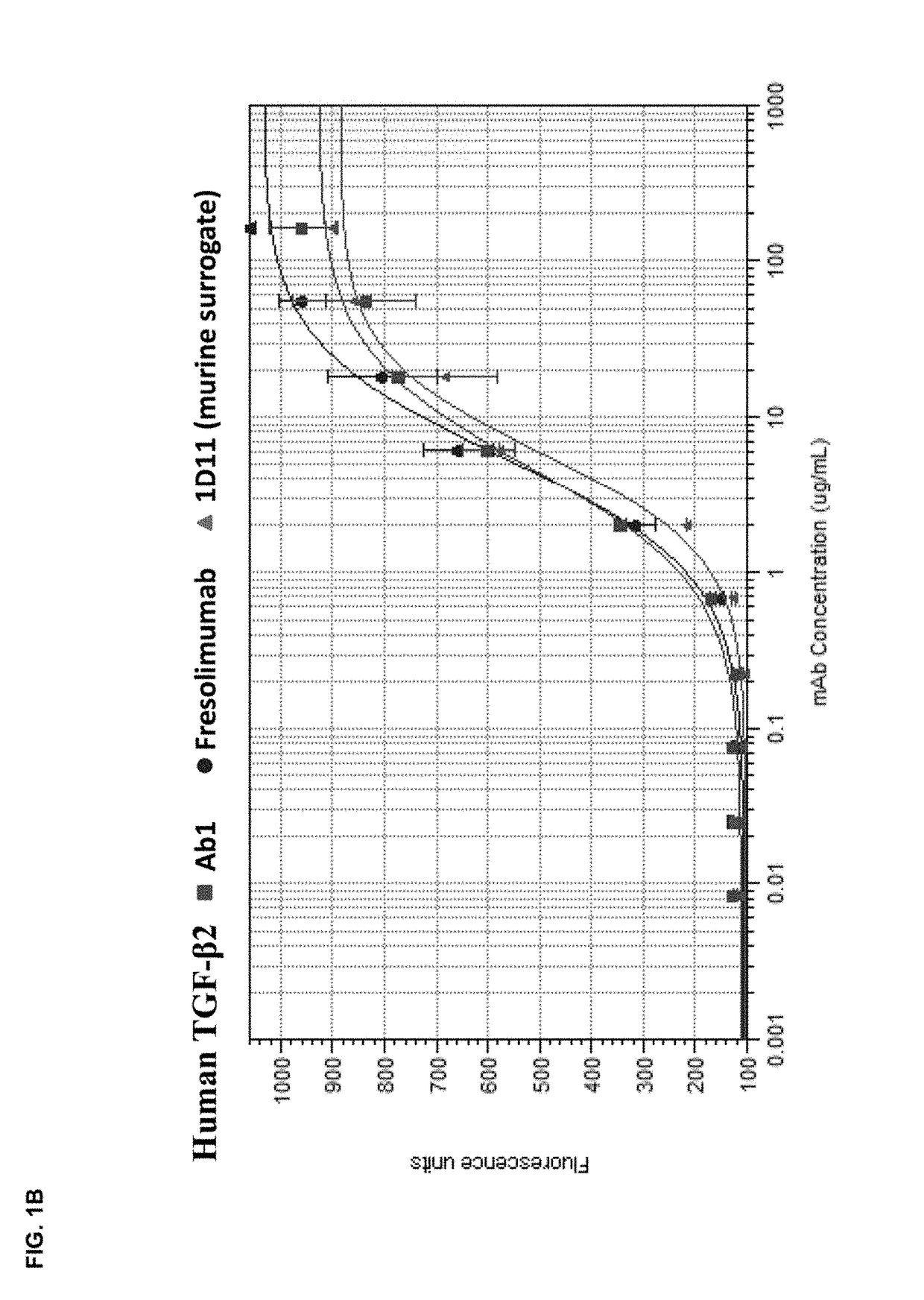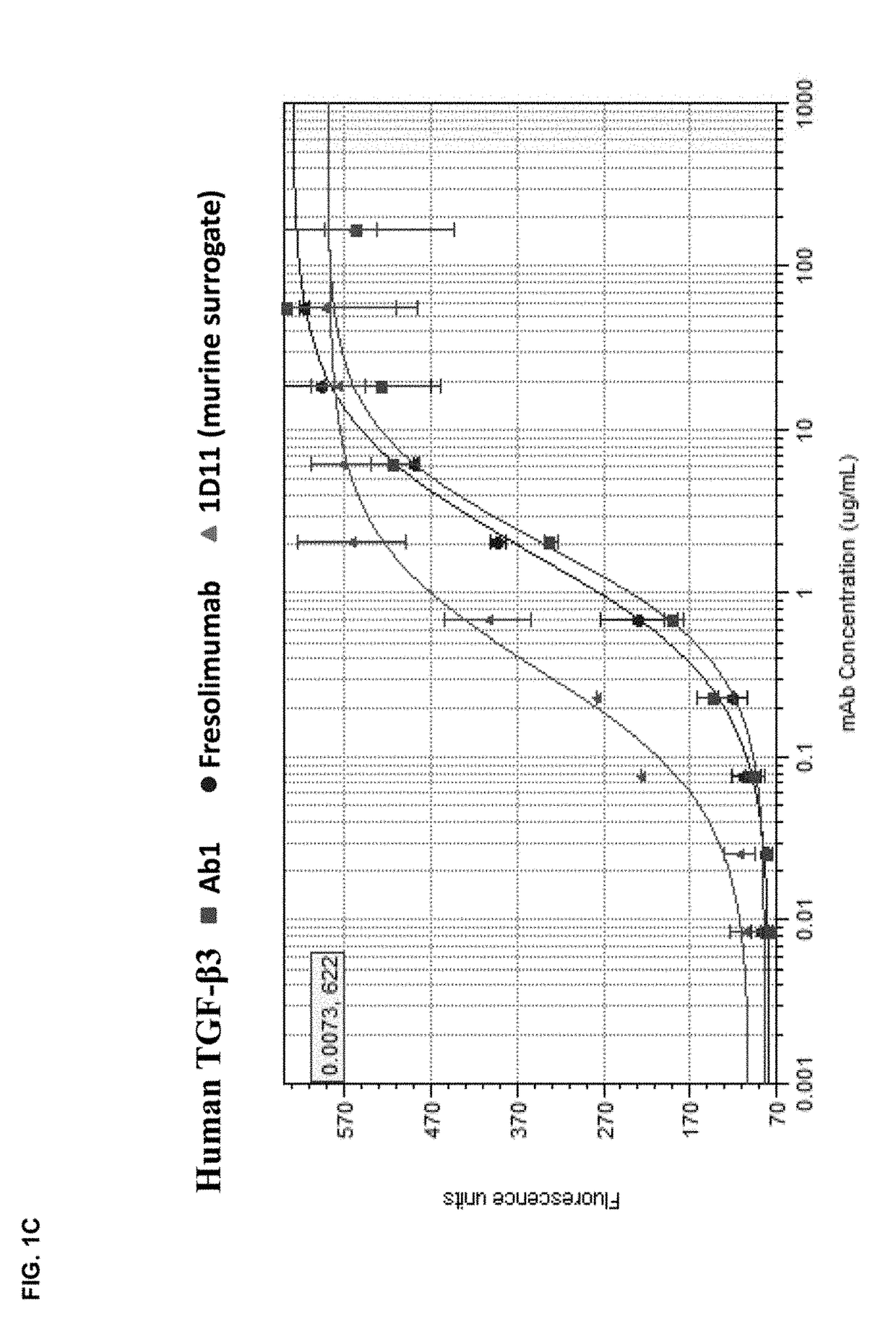Anti-tgf-beta antibodies and their use
a technology of anti-tgf-beta and antibodies, which is applied in the field of cytokine, can solve the problems of difficult production of antibodies to human tgf-s in animals such as mice, and achieve the effects of improving clinical benefits, superior pharmacokinetic profiles, and increasing half-li
- Summary
- Abstract
- Description
- Claims
- Application Information
AI Technical Summary
Benefits of technology
Problems solved by technology
Method used
Image
Examples
example 1
TGF-β-Binding Properties of Ab1
[0167]The affinity of Ab1 for all human and murine TGF-β isoforms was determined by surface plasmon resonance on a Biacore T200 Biosensor instrument (GE Healthcare) using a dextran-coated carboxy-methylated (CM5) series S chip. Ab1 at a series of concentrations (1.11, 3.33, 10, and 30 nM) was injected onto immobilized recombinant TGF-β to measure the binding interaction in real time. The TGF-β homodimers were immobilized at a low density to reduce avidity effects. Injections were performed in triplicate and the binding assay was repeated three times. The data from the kinetic experiments were processed using the Biacore T200 Biaevaluation v2.0 software. Resulting sensorgrams were zeroed, aligned, double referenced, and cropped for curve fitting analysis using a 1:1 binding model to determine association rate constant (ka), dissociation rate constant (kd), and equilibrium dissociation constant (KD).
[0168]The recombinant proteins were either produced int...
example 2
TGF-β-Neutralizing Potency of Ab1
[0172]The in vitro potency of Ab1 in neutralizing TGF-β activity was measured in a cell-based assay. This assay measured the ability of TGF-β to inhibit the proliferation of untransformed mink lung epithelial cells (Mv 1 Lu cells). See, e.g., WO 2006 / 086469 and Mazzieri, et al., Eds, “Methods in Molecular Biology,” Vol. 142, “Transforming Growth Factor-β Protocols.” The ability of Ab1, fresolimumab, and 1D11 (a murine anti-TGF-β antibody, whose heavy and light chain sequences are disclosed herein as SEQ ID NOs:9 and 10) to neutralize human TGF-β1, 2, 3 and murine TGF-β1 and 2 was assessed. The recombinant TGF-β proteins were either produced internally (human TGF-β1, 2 and 3) or acquired from R&D Systems (murine TGF-β1 and 2).
[0173]All human and murine TGF-β isoforms inhibited the proliferation of the mink lung cells in a dose-dependent manner in the range of 0.02 μg / ml to 10 ng / ml. To quantify the potency of Ab1, fresolimumab, and 1D11, 1 ng / ml of th...
example 3
Inhibition of Inducible T Regulatory Cell Differentiation by Ab1
[0174]Regulatory T cells (Treg) are immunosuppressive and have been correlated with negative outcomes in cancer patients. In the study described below, we investigated whether Ab1 could inhibit TGF-β-induced differentiation of human CD4+ T cells into inducible regulatory T cells (iTreg). Primary human CD4+ T cells were isolated from healthy normal donors. Human TGF-β1 was purchased from R&D Systems.
[0175]To investigate the antagonist activity of Ab1 for TGF-β generated endogenously by the cultured cells, total CD4+ T cells without the addition of exogenous TGF-β were treated with 50 μg / ml of isotype control (human IgG4, kappa anti-hen egg lysozyme (HEL) antibody, Crown Biosience), Ab1 or fresolimumab in the presence or absence of stimulation (anti-CD3, anti-CD28, and IL-2) for 6 days followed by flow cytometric analysis. Mean percent and standard deviation of the CD25+FOXP3+ population was calculated from the parent pop...
PUM
| Property | Measurement | Unit |
|---|---|---|
| concentrations | aaaaa | aaaaa |
| concentrations | aaaaa | aaaaa |
| concentrations | aaaaa | aaaaa |
Abstract
Description
Claims
Application Information
 Login to View More
Login to View More - R&D
- Intellectual Property
- Life Sciences
- Materials
- Tech Scout
- Unparalleled Data Quality
- Higher Quality Content
- 60% Fewer Hallucinations
Browse by: Latest US Patents, China's latest patents, Technical Efficacy Thesaurus, Application Domain, Technology Topic, Popular Technical Reports.
© 2025 PatSnap. All rights reserved.Legal|Privacy policy|Modern Slavery Act Transparency Statement|Sitemap|About US| Contact US: help@patsnap.com



